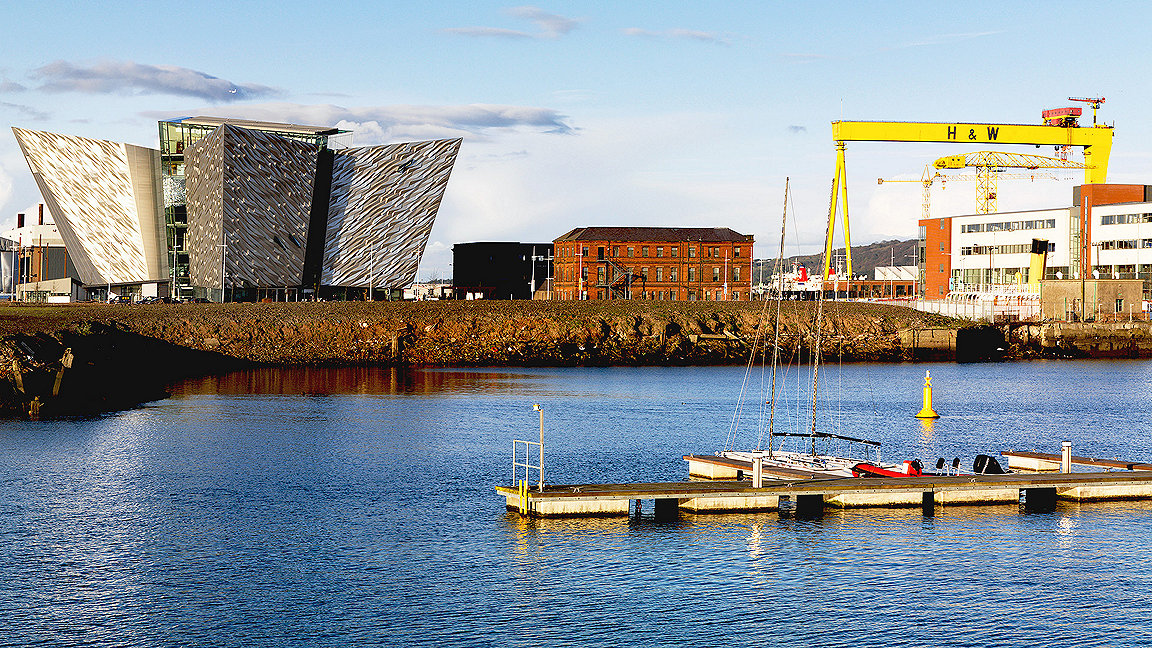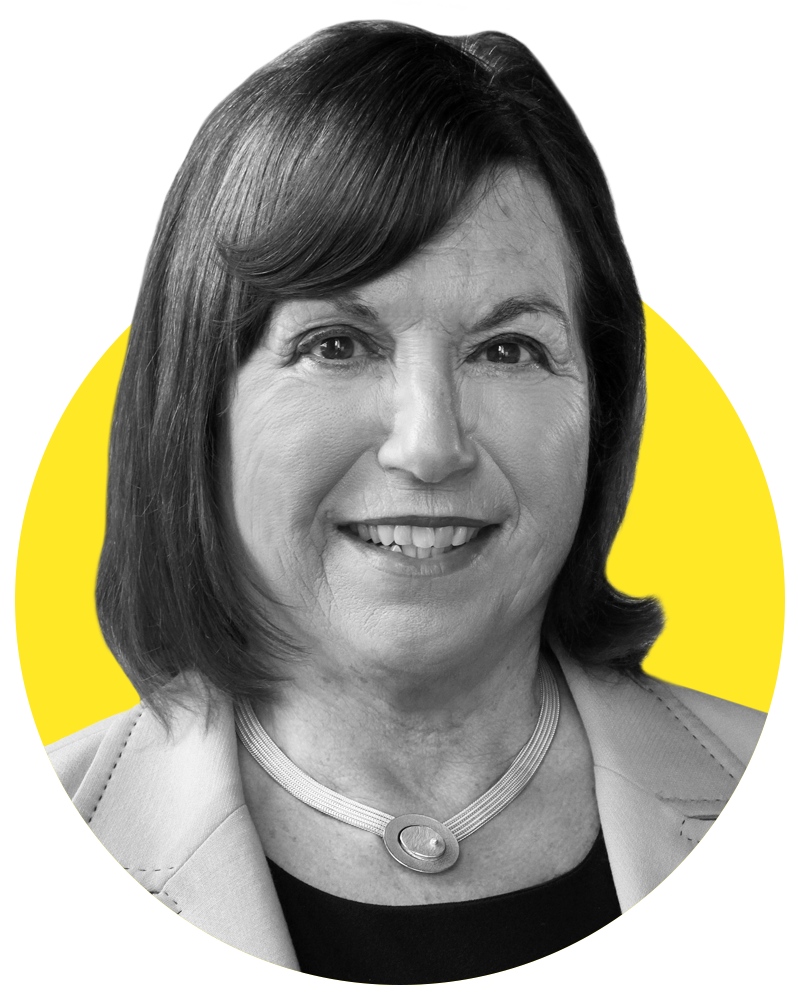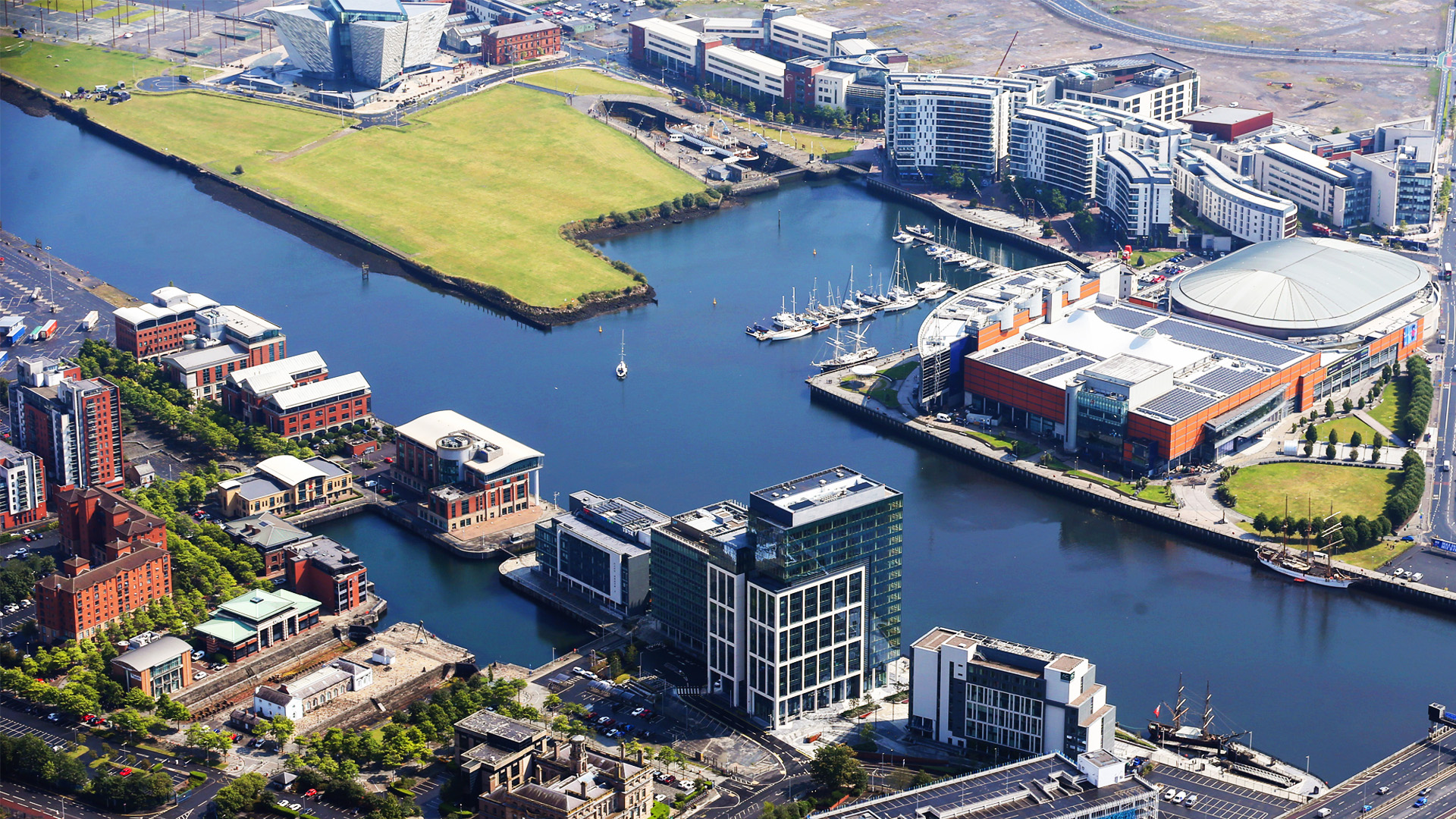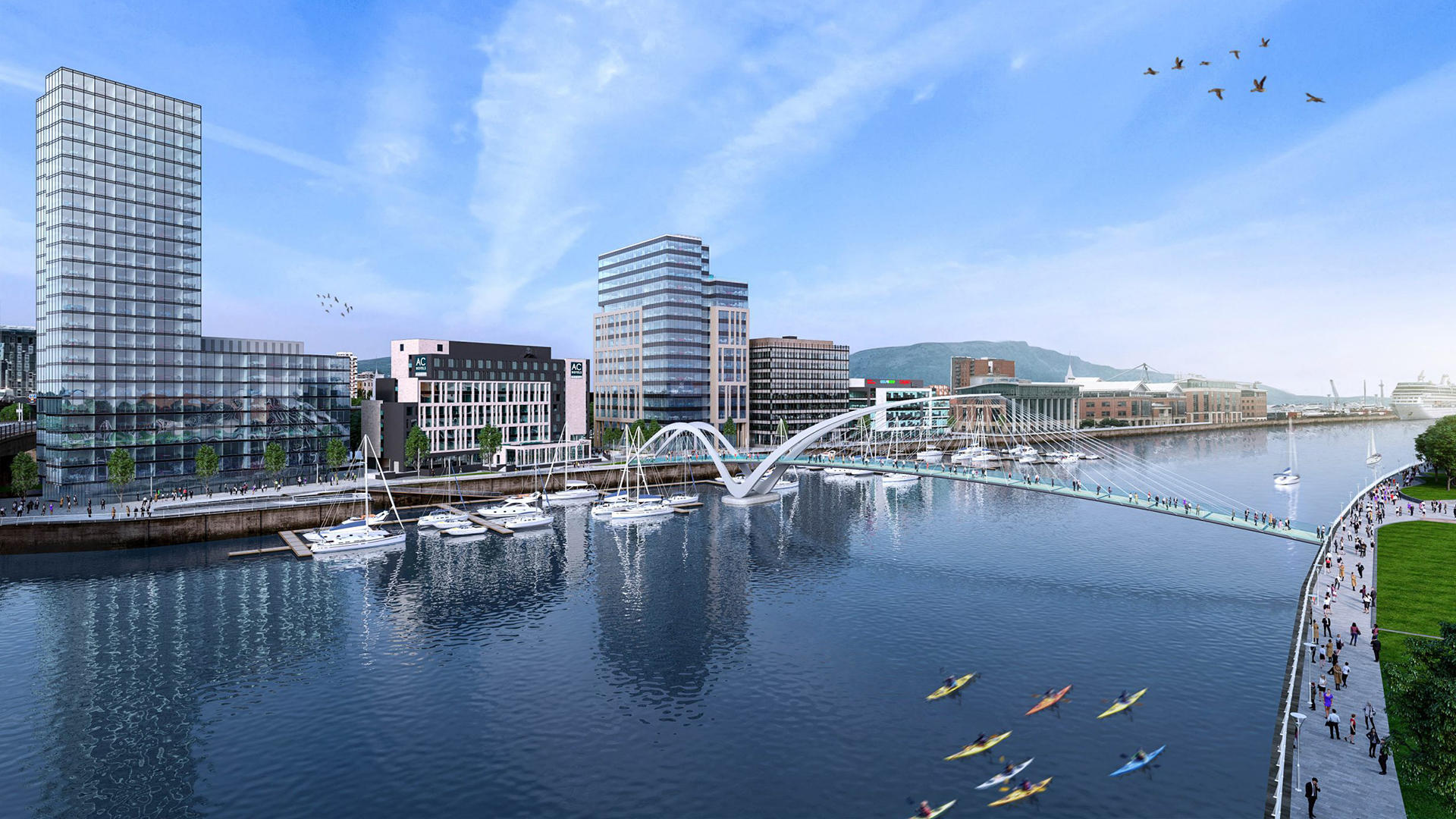
Titanic Museum and The Samson & Goliath Cranes along the Belfast harbour waterfront
For a highly respected surveyor and town planner who has risen to the top of her profession, winning awards and accolades across a diverse career spanning several decades, Diana Fitzsimons FRICS certainly hides it very well.
In talking to Modus for this feature, the modest Belfast-based industry veteran was more concerned about coming across as “too big for my boots” than listing her achievements. She wanted instead to focus on the future, offer advice for young people coming into the profession, and give her husband and sons “an accolade or two” for their love and support along the way.
That said, as winner of RICS’ first ever Lifetime Achievement Award, at the RICS UK Awards 2022, it would be remiss not to delve a little into Diana’s professional ‘greatest hits’. They span the public, private and voluntary sectors, beginning in the 1970s when she was a bright-eyed and highly motivated student living in Ireland.
Diana successfully completed a master’s degree in Economics and Political Science at Trinity College Dublin, before moving back to Northern Ireland to complete a further master’s degree in Town Planning at Queen's University Belfast – a city she retains strong links with today.
After her university education, Diana’s professional education included an MRICS qualification in Planning and Development and a postgraduate university qualification in property law. “After all that I swore no more exams, not ever, and I have stuck to that pledge,” she says. However, she once again sees the allure of further education, looking to potentially study for an A-level in something completely different, like archaeology or art. “You have to keep your mind agile, especially when semi-retired,” she says.
Starting out
Diana’s first job was as a town planner working for central government, shortly after which she spent two decades as a senior lecturer at Ulster University. At the same time, she was carrying out planning consultancy work through the university’s Industrial Unit.
In 1997, she joined the Northern Ireland Planning Appeals Commission as commissioner, later becoming principal commissioner, focusing her energy on local plan examinations and major planning inquiries into large or controversial projects. “I could write a book about some of the cases I presided over,” she says, “as many were either environmentally complex or involved fundamental human rights issues, all set within the political complexity of a divided society in Northern Ireland and what was then a centralised planning system.”
A switch of role in the early noughties saw Diana join planning consultancy Turley as office director where, for the next decade, she led many complex regeneration projects across Northern Ireland. The office was filled with “smart young planners and urban designers” who were “quick to get things done and enthusiastic about the region’s potential. Working was a pleasure,” she says.
When the recession struck in 2008, Diana and her team made the bold move to upskill the Belfast office to tackle sustainable energy projects, an area the business has grown a strong reputation in today. Diana counts sustainable development and good quality urban design as among her main interests, alongside a commitment to the regeneration of former brownfield sites.

“Working should be exciting, enjoyable and uplifting, so my advice is to never turn down any opportunity” Diana Fitzsimons FRICS
An equally important role
Diana has always worked full time, but that didn’t prevent her from balancing her career with motherhood and raising four sons – a role she considers “profoundly important to my life.” Her sons, of whom she is enormously proud, work in a variety of professional areas and live with their families around the world.
One thing that stands out in Diana’s long career is the series of completely different fields she worked in. After leaving Turley, she set up her own planning consultancy, then took on the role of chair of the largest housing association in Northern Ireland. She presided over its merger with another housing association, to form Radius Housing in 2017.
Radius initially employed a workforce of 1,200 and provided family housing, sheltered housing, care homes and facilities for vulnerable people. It may come as a surprise that social housing in Northern Ireland is predominantly single tenure and over 90% is religiously segregated. Diana says she is proud to have helped introduce mixed religion and mixed tenure developments, also improving the lives of tenants by providing community safety classes, employment training and youth engagement.
Throughout her career, Diana has been a strong advocate of learning from good practice around the world, having been the vice president of the International Federation for Housing and Planning (IFHP) and involved with UN Habitat. She helped organise, and delivered lectures at, many IFHP congresses globally and in 2018 organised a successful UN Habitat Urban Thinkers Campus in Belfast.
Working with RICS
Diana’s long and fruitful relationship with RICS includes being the Chair of RICS Northern Ireland, Chair of RICS UK Planning and Development Faculty Board, then more recently, a member of RICS Governing Council. Diana organised RICS’ annual Planning and Development Conference in Northern Ireland for several decades.
Additionally, during her tenure as vice chair of the RICS charity Lionheart, Diana was closely involved in disseminating information to RICS members about the diverse services it offers to surveyors and their families in times of need.
Alongside a swathe of professional qualifications, Diana has been awarded fellowships of the RICS, the Royal Town Planning Institute and the Institute of Directors. In 2021 she received the Non-Executive Director of the Year Award from the Institute of Directors (IoD) NI. She has also served on several advisory boards and is currently a member of the Lloyds Bank NI Housing Forum and chair of International Centre for Local and Regional Development’s Research Forum.
Helping the next generation
Despite these achievements, Diana is eager to instead focus on how she can help young people reach their potential. “I’m keen that young surveyors develop their talents and take on new opportunities that come their way,” she says. “Working should be exciting, enjoyable and uplifting, so my advice is to never turn down any opportunity. I never did – even if every new challenge scared me to death!”
The urge to support the next generation manifests through her role as a visiting professor in the Built Environment at Ulster University and her involvement with outreach and community development through Belfast Harbour’s Responsible Business Committee.
Which brings us full circle to Diana’s current passion project, Belfast Harbour, where she has been a Belfast Harbour Commissioner for the last six years and active on several key committees, including current chair of the Property and Place Committee. This committee is focused on two important aspects of the harbour’s long-term strategy – developing its role as a key economic hub for the region and an iconic waterfront for the city.
Diana originally worked on planning developments across the 800-hectare harbour estate while at Turley, including the mixed-use City Quays and Titanic Quarter. More recently, she has taken part in major follow-up developments that received over £254m of investment by Belfast Harbour over the last five years. These included film studios, Grade A offices, port and renewable energy facilities and leisure and tourism projects.
“The development of the harbour as a major part of the city’s Innovation District is integral to the success of the city,” she says. “As a Trust Port that reinvests its profits for the long-term benefit of its customers and stakeholders, social responsibility is crucial, which really matches up with my own ideals.”
A significant strand of its remit as a socially responsible port involves support for, and partnerships with a wide variety of community engagement projects. There is a focus on supporting employability and skills, the environment and local communities.
Activities like this, which reflect Diana’s own preoccupation with ensuring the built environment enhances peoples’ lives and gives them new opportunities, perhaps explains her wariness about discussing her own life and achievements. It’s fortunate then that we’re here to do that for her.
“I could write a book about some of the cases I presided over” Diana Fitzsimons FRICS



